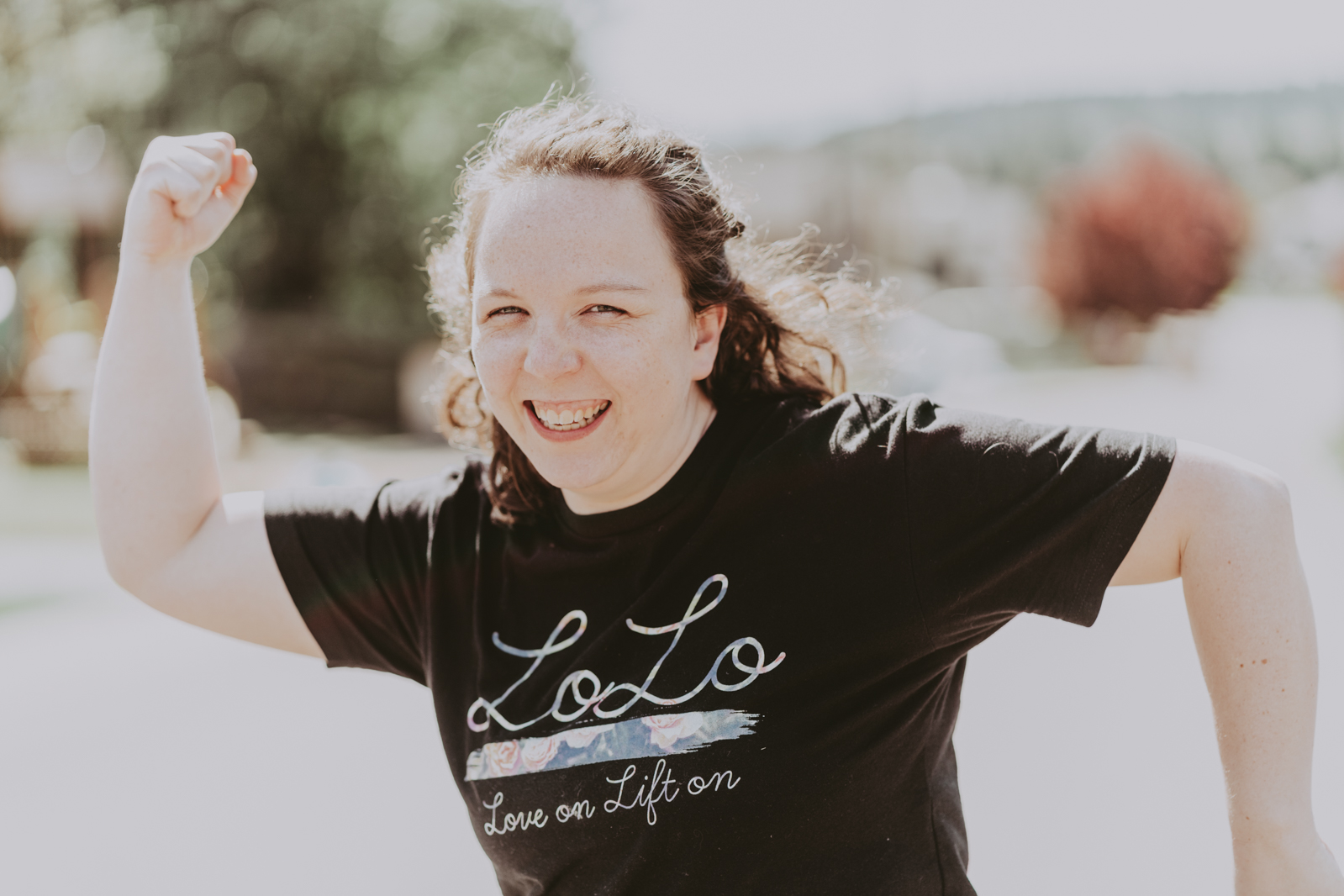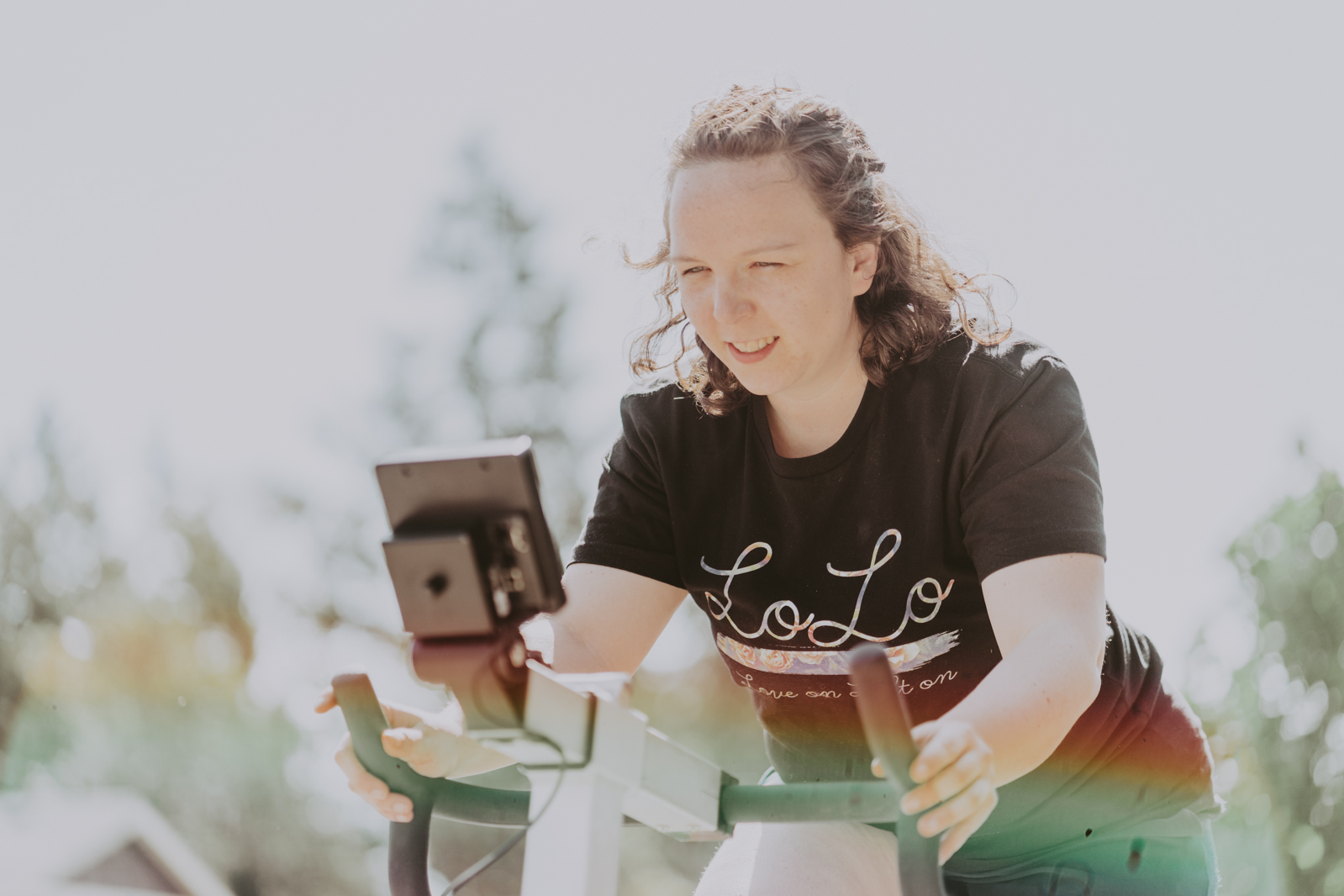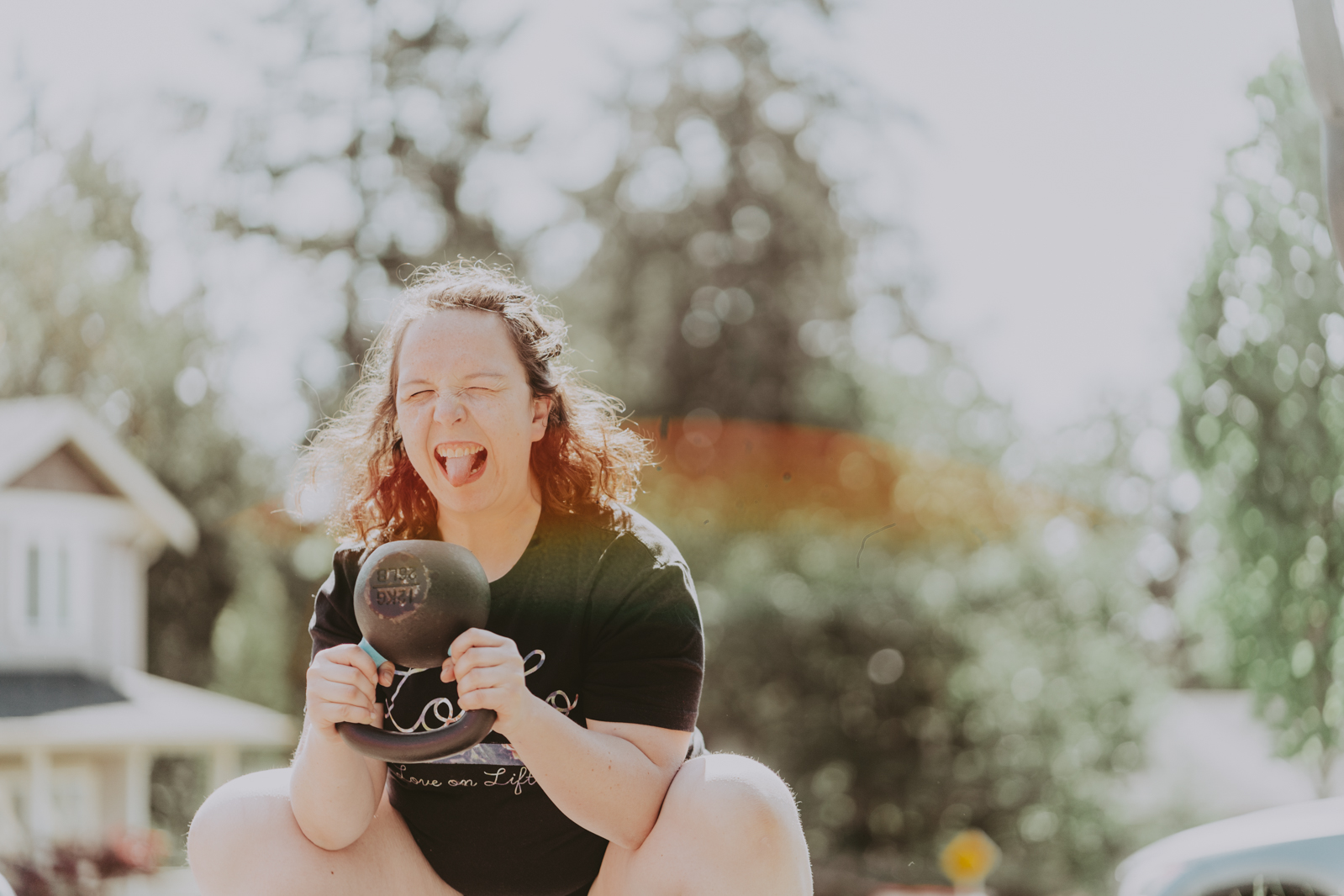Tell us about your fitness journey.
Grade 11 is where me “being an athlete” started. During gym class one day, we were doing circuits and I loved them. My friend, who rowed, said they did lots of squats and circuits at winter training and I love the water and water sports, so I decided to start rowing. From there, I joined as a junior with Victoria City Rowing Club and learned how to train. I had great coaches who really helped me to build my technique and confidence with competing. When it came time for university, I rowed with the Vikes [University of Victoria team] both as a lightweight, as a coxswain, and in the varsity 8+. In 2013, I was starting to perform at the u23 standards on the erg and on the water and was hoping to compete for a spot on the u23 national team. By this time, being an athlete and sports had become a huge part of my identity.
Right after the Canadian university national rowing champs, I was in a car accident. I was in shock. I didn’t feel anything until the next day, when I felt lower back pain and sharp tingling pain spread down both of my legs, which I lived with for about 2 years. Because it was related to a car accident, my whole health team switched from a ton of support at Vikes to trying to find people who could help me get back to rowing and figure out what was going on with my legs. I’m an occupational therapist now and I work with lots of people who experience ongoing pain after they’ve been in car accidents. I have learned, and share with my clients in therapeutic ways, that there is not a 1 to 1 relationship between the “issues in the tissues” and pain because context matters, and finding ways to do activities (or meaningful occupations) and actually do them is not just recommended, but essential for physical and mental recovery. But at the time of my injury, the health team I saw said, “you can’t do anything until you’re better. Really rest.” So, I went from training 2 or 3 times a day to complete nothing and I was devastated. “What’s happening with my life?” I put up walls between me and my teammates and distanced myself from my friends because I felt I would be a burden. I didn’t feel like I belonged in the rowing community anymore, a community that had been a huge part of my life and felt like family for years.
I had been coaching high school athletes for a couple of years already, so I thought, “I’ll get more involved with coaching and the logistics side of things on the water.” And that’s what I did. I started feeling better and I was successfully distracting myself with coaching. One day, I no longer had any pain – it was just gone and I felt like I could try training again. At the same time, I didn’t feel like I had time to train for myself. I was at a different point—now I was more career-focused. I didn’t know how to train in a non-high-performance way without high performance expectations for myself. In 2016, I went to Dalhousie University for my masters and there they had a fit club which was for faculty, staff, and students. I thought, “what the heck—I’ll do fit club”. There was the rule: “what happens in fit club, stays in fit club.” It was really fun, we laughed lots, and we tried all different things like kick-boxing and core. Then I got involved with coaching in the Halifax rowing community and there, it is very different. Everybody just rows because they want to row and learn how to make the boat faster. And everybody rows together—novices, experienced, juniors, masters, seniors, para rowers, able-bodied rowers—it’s not about the accolades you’ve gotten in your career or where your performance is at in a single compared to everyone else. The environment is ‘train to train’ instead of ‘train to perform’ which is what I needed. It was a really supportive, welcoming community and if I were there, I would 110% be rowing. But I’m here in Victoria, so after another training hiatus I started hunting for a training environment where I could learn to love to train again and where community was important.
And I found Lolo! Starting out, I still had high expectations for myself in terms of what type of training I should be doing, how often per week, and how I should be performing. Failing to meet those self-set standards over and over again was hard at first. However, at my first class, when Adam told me firmly not to do CrossFit classes for the first few months, to ease myself in with lifestyle classes—that was huge for me to realize that it’s okay to be wherever I am at with each session—that I don’t have to hit a performance standard to be ‘part of the team’. I’m happy to say that, for the most part, I’m now in a place where I really love training just for the sake of training again and trying to improve to get stronger and faster and having fun with it.
Would you share one of your happy moments?
Being in OT [Occupational Therapy] School and being in Halifax there were a series of some of the happiest moments of my life. Which was the happiest when I was there? I think it would have to be “For the Health of It”. Each of the different schools compete for the “For the Health of It” Cup. It’s a fundraiser for a non-profit where each health professional school creates a skit that is 13 minutes max, about interprofessional health care and working with people who are recovering and getting back to doing what’s important to them. Each skit is done to a different theme. In my first year we did Snow White and I was “Happy the OT”. In our second year we got to organize the whole thing. My friend Daniel and I became the co-directors for the OT team in second year. We won the bid to do Harry Potter as our theme. We had a whole team working together and everyone put so much energy into it which made my heart so happy.
Tell us about a sad moment in your life.
When I stopped rowing—that was the saddest moment. I was in a dark hole of “All my goals are gone. I don’t know what I want to do with my life. What do I do with all this time now? Where do I go?” It took some time to find a ladder out of the hole.
Looking back, are there things that you gained from that experience?
Yes, 100%. For me, as an Occupational Therapist, I work with lots of people who’ve been in car accidents as well and who are experiencing ongoing pain. I can never make a guarantee that they’re going to get to live completely pain free—we currently don’t know enough about pain to really say that and it depends on lots of biopsychosocial factors—but, in instances when it would be therapeutic for the person to share my experience to offer hope, I can say that even before my pain left, I was able to better manage my life and do occupations that are important to me.
The other thing that getting injured did for me is that it gave me the opportunity to explore other interests like coaching and photography, to go more into the direction of my career, and connect more deeply with my values: working towards a place where people, disabled or currently abled, can do what they want and need to do, reaching their fullest potential and goals for living, with whatever supports they need, and be included and welcomed.
Who is an inspiration in your life?
There are lots of people. I really can’t pick one. Professionally, I have lots of people who inspire me, my former preceptors, my former professors, my coworkers, current and former people at Power to Be, researchers & advocacy leaders. At Dal there is a whole aspect of occupational justice to the program, that was developed when Dr. Liz Townsend was director. In our curriculum, it was emphasized that as therapists, it’s important to meet people as people and recognize the ways that different parts of their social identities may influence how they may experience and participate in the world, how the world views them, and the way they may or may not access services, including necessary health services. Even though we are professionals, in sessions with clients, we’re all really meeting as humans. My friend’s mom, Jill Zwicker, is a professor at UBC, she does clinical OT, and she does research. That would be so cool. At one point I’d like to work with communities on how to make things more accessible and inclusive, and support the realization of occupation-based human rights at the systemic level. In general life, so many of my friends have inspired me to live with more balance and fun like my friend Daniel; he was the smartest kid in our class, he got the highest grades, and he spent so much time just trying to explore things from different angles and getting curious. So in life: have fun, be kind, learn, stay curious, and get comfortable with failing forwards sometimes.



Paragraph

you said: